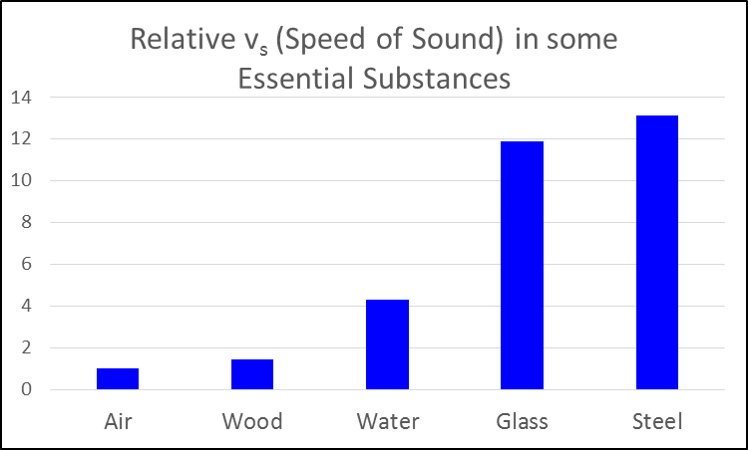I'm looking over PowerPoint slides of my past Physics lecture and I'm confused about a point my professor made:
The speed of sound is much higher in a liquid or a solid. It turns out that the speed of sound is given by
$v_s = \sqrt\frac{B}ρ$
where $ρ$ is equal to density, and $B$ is equal to the elastic modulus.
I'm wondering why the speed of sound is higher in a liquid or solid. Solids and liquids are more dense because the volume occupied by their mass is smaller. So shouldn't the denominator in the fraction expression be larger, which means the speed of sound is going to be lower?
I'm wondering where I'm going wrong in my understanding, hoping that someone could clarify this for me.


